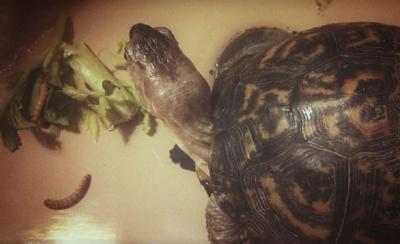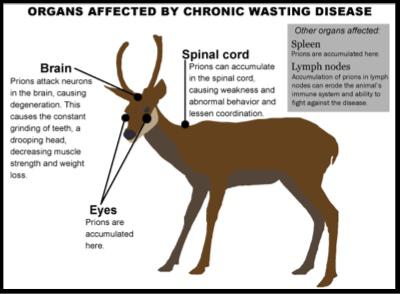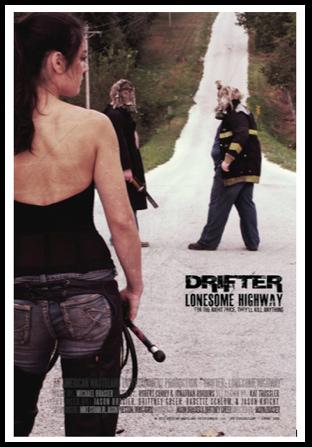
Dee Loflin, SMT Manager/Editor
Southeast Missouri - Elected officials from several counties have banded together to support the much needed electricity rate reduction that Noranda Aluminum plant has requested from Ameren Missouri.
A letter to the Public Service Commission signed by elected officials in several counties was emailed to the ShowMe Times. The letter is dated June 9, 2014 and is as follows:
-Elected County Officials of New Madrid, Dunklin, Pemiscot, Stoddard, Scott & Butler Counties
Public Service Commission
200 Madison Street
P.O. Box 360
Jefferson City, MO 65102-0360
RE: Closure of Noranda Aluminum Due to Increased Electric Rates
Dear Commissioners:
We, the Elected County Officials of New Madrid, Dunklin, Pemiscot, Stoddard, & Butler Counties, write you today as a collective group to express our extreme concern for the economic well-being of our communities should the unthinkable event of the closure of Noranda Aluminum occur due to increased electric rates charged by Ameren Missouri.
As it is certainly understandable that a company such as Noranda could not survive an increase of $44 million over the six years for a single overhead item such as electricity, we support the rate reduction requested by Noranda. We respect the heavy burden this decision places upon you as Public Service Commissioners and request that you consider the disastrous effects to our region that the closure of Noranda will cause in your deliberations.
What we can say with certainty is the dire economic ramifications that the closure of Noranda Aluminum would have on our region. Noranda is not simply the foundation for the economy of New Madrid County; it is in many ways the bedrock to multiple sectors of the economy for this entire region.
The loss of 900 high paying jobs with substantial benefits will cause irreparable cascading damage to many business sectors that rely on both serving as vendors for the supply and maintenance of he smelter as well as those businesses that rely on the patronage of those employees of Noranda.
It is difficult to conceive of a business sector that will not be devastated by the loss of these 900 high paying jobs with substantial benefits. The housing market will plummet in all counties, with the epicenter falling in New Madrid and cascading across the surrounding counties. The construction industry, including hardware supply stores, carpenters, plumbers, and electricians, will suffer as 900 fewer high paying jobs means far less new home construction in the region.
The banking industry will suffer crushing numbers of defaults and home foreclosures when these 900 families suddenly face the grim reality of having far less or no income to pay their notes. The list goes on and on….
The citizens of this region are a proud, resilient people. They pride themselves on working hard and being self-sufficient and self-sustaining. The sad reality of this situation is that should Noranda shutter its doors, no matter how determined the people are, we will not recover. This area and is its proud history will be forever damaged and its people forever injured. The socio-economic fabric of this region will never be the same.
Therefore, we the Elected Officials of New Madrid, Dunklin, Pemiscot, Stoddard, & Butler Counties implore you in your deliberations to consider the citizens of our counties and the drastic effect your decision will have on each an every one of their lives.
To preserve our regional economy and way of life, we respectfully request that you grant Noranda Aluminum their request rate reduction.
RESPECTFULLY,
The Elected County Officials of New Madrid,
Dunklin, Stoddard, Scott, Pemiscot & Butler
Please note the letter is signed by every elected county official in the Bootheel (56 signatures) from New Madrid, Dunklin, Pemiscot, Stoddard, & Butler counties. There are only two elected officials who were unavailable at the meeting to sign either due to illness or being out of town.


Submitted by
Dee Loflin, SMT Manager/Editor
Missouri - This is Murtle the Turtle and she was rescued nearly 65 years ago from crossing a highway. She currently resides with Jessica Loflin in Dexter, Missouri.
"My grandpa found her when he was a little boy and decided to keep her. Back then turtles didn't have to dodge so many cars like they do now so we rescue and help turtles cross the road as much as we can. Murtle has been in our family for all these years and she will probably outlive me. My great granny Gier spoiled her with scrambled eggs and fresh vegetables, but her favorite foods are mealworms and strawberries."
Have you ever seen a turtle trying to cross a busy highway and wondered how many die under the wheels of automobiles each year? Jeff Briggler has, and as Missouri’s state herpetologist, the answer worries him.
Briggler and other workers at the Missouri Department of Conservation have made informal observations over the years, counting the number of dead turtles – especially box turtles – on stretches of highway.
“We discovered that mortality rates are very high on high-traffic roads,” says Briggler, “whereas mortalities are much lower on less-traveled roads.”
In just one day, Briggler counted 116 three-toed box turtles crossing Highway 63 between Jefferson City and Cabool. Of those, 104 had been hit by vehicles.
Turtles are struck by cars throughout the warm months, but they are at special risk at this time of year, when they are moving around looking for mates and establishing home ranges. Young males are most at risk. Comfort is a factor, too. Like other reptiles, turtles are cold-blooded. Walking out onto warm asphalt and basking in the morning sun feels good on cool spring days.
Box turtles live a long time, and females continue laying eggs for most of their lives. They need lots of time to replace themselves, since snakes, raccoons, opossums, and other nest predators eat most of their eggs. A low reproductive rate was not a problem before roads crisscrossed their habitat. Animals that continue laying eggs past 60 years of age have plenty of time to replace themselves. But the unnatural mortality caused by speeding cars is a problem.
“Box turtles did not evolve amid thousands of miles of busy highway,” says Briggler. “We don’t know very much about how highway mortality will affect their long-term survival, but the implications of our casual observations are worrisome. Animals with low reproductive potential usually cannot sustain the sort of continuing mortality that we see on our roads.”
To help, Briggler suggests that motorists slow down when they see a turtle in the road and check to be sure they can safely steer around it.
Briggler also is troubled by the too-common practice of capturing box turtles for pets. He said the animals’ nutritional needs are not easy to meet in captivity, so captive turtles are likely to die due to improper care. In most cases, that means slow starvation.
He suggests keeping a turtle only for a day or two and then releasing it where it was captured. He said this last condition is very important, since turtles are intimately familiar with their home areas. If released in strange surroundings, they have trouble finding food and may wander across roads trying to meet their daily needs.
The three-toed box turtle is the species most often seen crossing roads in Missouri. Primarily a woodland species, it is found everywhere but the extreme northern part of Missouri. The ornate box turtle is found in all but the southeastern corner of the state, but is more adapted to grassland and is most common in western Missouri. Young males make up most of the travelers as they search for territories of their own and for female turtles.
Three-toed box turtles have three toes on each hind foot, unless they have lost a few appendages to predators or frostbite. Ornate box turtles usually have four toes per hind foot. In keeping with their name, ornate box turtles also have more vivid yellow stripes on a black background on the tops of their shells. The bottoms of their shells typically have streaks of black on a yellow background.
For more information about box turtles, visit http://mdc.mo.gov/node/987.

Dee Loflin, SMT Manager/Editor
Missouri - The Conservation Commission voted to approve proposed amendments to regulations regarding the operation of hunting preserves and wildlife breeding facilities that hold white-tailed deer, mule deer, their hybrids, and other members of the deer family, known as cervids. The changes would become part of the agency’s strategy to minimize fatal disease risks to the state’s deer herd.
Actions recommended by the Commission include:
Banning the importation of live white-tailed deer, mule deer, and their hybrids from other states.
Improving fencing requirements for captive-cervid facilities.
Requiring all deer 6 months or older that die in a Conservation Department-licensed facility to be tested for CWD.
Establishing better record-keeping requirements for Conservation Department-licensed captive-cervid operations.
Prohibiting any new captive-cervid facilities within 25 miles of where CWD has been confirmed.
The proposed amendments are designed to ensure the health of Missouri’s entire deer herd, which includes free-ranging and captive-cervids. These proposed amendments work to reduce the risk of this fatal disease (CWD) from spreading beyond the limited area where it has been found, while minimizing the economic impact on the captive-cervid industry and the communities and businesses that benefit from deer hunting and deer-related activities.
CWD is a fatal disease that affects members of the deer family, collectively called cervids. It is different and unrelated to the recent outbreak of hemorrhagic diseases. Those diseases – blue tongue and epizootic hemorrhagic disease – are caused by viruses and are often not fatal. Their effects are short-term and localized. However, hemorrhagic diseases have been in Missouri for years, and white-tailed deer are adapted to cope with them.
Over 500,000 citizens enjoy deer hunting, sharing their hunting heritage and passing that heritage on to future generations. Missourians consume millions of pounds of venison and share with neighbors in need through the Share the Harvest Program. The spread of CWD could negatively impact deer-dependent businesses that support more than 12,000 Missouri jobs and generate over $1 billion in economic activity annually.
Proposed changes to the Wildlife Code of Missouri would give white-tailed deer an extra measure of protection against this fatal disease. The Missouri Department of Conservation stresses that success depends on an informed, involved public.
Now that the Conservation Commission has approved proposed amendments to the regulations, they will be published in the Missouri Register. There will be a 30-day public comment period beginning July 16, and any comments on the proposed rule changes will be forwarded to the Conservation Commission for its consideration. Those comments will be reviewed prior to deciding whether the rules will be adopted, amended, or withdrawn. To comment go to www.mdc.mo.gov/deerhealth.

Dee Loflin, SMT Manager/Editor
Springfield, Missouri - Jason Brasier, a Willow Springs native, and his business partner, Brittney Greer, a Dexter native, own American Wasteland Entertainment, based out of Springfield, Missouri.
American Wasteland Entertainment, a Springfield, Missouri-based production company, released the first episode of the second season of it’s award-winning web series, today: Drifter: Lonesome Highway. The second season of Drifter was shot locally in the southwest Missouri area.
Episode one of Lonesome Highway and all of Season 1 can be viewed at http://www.drifterseries.com
Drifter: Lonesome Highway begins about four weeks after the end of Drifter: Broken Road as she continues her quest for vengeance. Lonesome Highway takes us deeper into Drifter’s mind and exposes more of the pain that has led her on her quest.
Lonesome Highway comes out on the heals of numerous awards and recognitions that Broken Road received and is already receiving praise:
· "Drifter: Lonesome Highway is Gritty and Compelling storytelling with a rocking soundtrack!" ~Paul Awad -Director of Thurston - The Western Web Series
· "Graphic, grimy, and gripping. Buckle your seat belts Drifter fans, because Season 2 is non stop crazy." ~Michael Caruso~ Producer of DeVanity
· "These strong female characters in this series are a breath of fresh air." Larry Litle - Geekykool.com
· "Bigger, tougher and more badass." -Matt Smolen- Director/Producer of Chris & Josh
At the 2013 LA Webfest, Drifter: Broken Road (season 1) received the following awards: Outstanding Lead Actress, Outstanding Composer, Outstanding Writing, & Outstanding Directing. Drifter: Broken Road was also named an “Advance Selection” to the Marseille, France Webfest.
Drifter: Broken Road was also named a Hollyweb Festival 2013 Official Selection, Indie Soap Award Nominee, IndieIntertube.net another outstanding Drama Webseries of 2012 list, ScifPulse.net Top 10 Webseries of 2012 list, and A Top 10 Mingle Media TV Audience Choice Awards 2012 Finalist.
Drifter: Lonesome Highway stars Vanessa Leinani – Texas, Jennifer Eiffert – Springfield, MO, Jason Preston – Sparta, MO, Rodney Wiseman – Walnut Cove, NC, Drew Diveley – Independence, MO, George Cron – Springfield, MO, Melissa Young – Claremore, OK, Kelly Purser – Joplin, MO, Tyler Bueno – Springfield, MO, Michael Brasier, Willow Springs, MO, Shawn Young – Dexter, MO, Rachael Edlow – Carrollton, MO, Dalton Briggs – Springfield, MO, Brittney Greer – Dexter, MO, Jason Knight – Springfield, MO, Ben Cain – Cabool, MO, Jason Coatney – Willow Springs, MO, Elton Rose – South Africa, Bruce Robinson – Columbus, KS, Jason Brasier, Willow Springs, MO, and Zac Rantz, Nixa, MO.

Dee Loflin, SMT Manager/Editor
Stoddard County, Missouri - Eastbound Route 60 in Stoddard County will be reduced to one lane as Missouri Department of Transportation crews perform routine bridge maintenance.This section of roadway is located between Route 114 and Route 61.
Weather permitting, work will performed Tuesday, June 3 through Tuesday, June 10 from 7:30 a.m. to 4 p.m. daily.
The work zone will be marked with signs. Motorists are urged to use extreme caution while traveling near the area.
For additional information, contact MoDOT's Customer Service Center toll-free at 1-888-ASK-MODOT (1-888-275-6636) or visit www.modot.org/southeast.
For more information find them on Facebook, Twitter and YouTube!
facebook.com/MoDOTSoutheast
twitter.com/MoDOTSoutheast
youtube.com/MoDOTSoutheast

